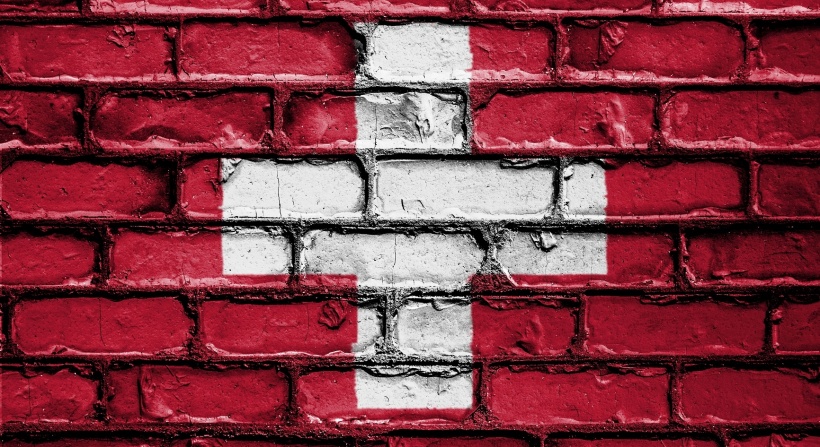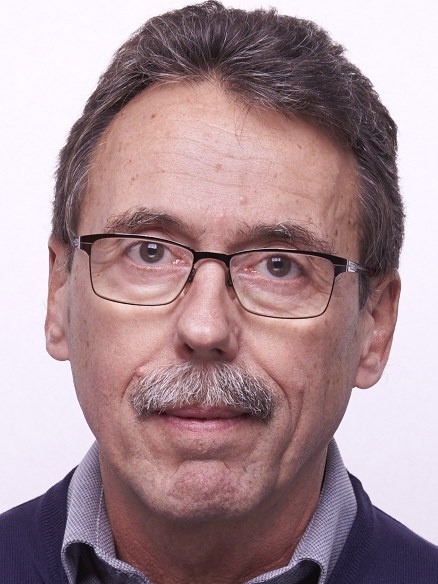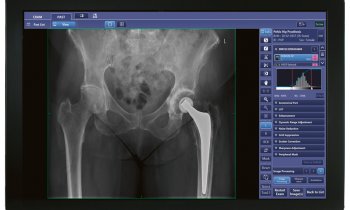
Article • Profession
Swiss radiographers face many challenges
The radiographer in Switzerland faces many issues, from having the right education to positioning themselves both professionally and legally in the healthcare continuum. Before a large audience at ECR 2018, Yves Jaermann, head of the radiographers service Riviera-Chablais Hospital in Vaud Valay, reviewed the situation in his country.
Report: Mélisande Rouger

The profession of radiographer was born in 1896, when the first X-ray machines were installed in hospitals. In Switzerland, radiographers began to organise themselves soon after. A professional association was founded in 1946. ‘This shows our forefathers realised how important it would be to promote and defend their activity as a profession,’ Jaermann pointed out.
Yet, according to him, the old idea of radiographers being the radiologists’ helpers still haunts common memory. ‘It’s still present in the mind of some radiologists and radiographers, who are ashamed. Fortunately younger generations have a vision of complementary professional roles,’ he said.
A bachelor degree adds value

Among reasons for this sticky belief is that the education of Swiss radiographers remains unequal throughout the country. The bachelor’s level was introduced in the French-speaking zone of Switzerland in 2002. However, in the rest of the country, radiographers can only take a diploma of higher education, which undoubtedly has less value, Jaermann explained. ‘The professional skills of both diplomas are considered equivalent, but here I have to insist on the added value of the bachelor level. Students are made aware of research; their bachelor thesis is a first approach to this field. These young professionals have a slightly different professional behaviour, and position themselves more clearly in a partnership with other professionals, such as radiologists. They have learned to learn and become much quicker in daily routine with every kind of modality,’ he said.
There are great advantages to having a bachelor’s degree. Conversely, pathways to clinical practice with a university level cost quite a few additional years of studies and more money. The trend for a bachelor’s level is spreading through Europe and hopefully we’ll follow this trend as soon as possible,’ he said. But trilingual and multicultural Switzerland is a complex setting to homogenise education. The Swiss Association of Radiographers recently fought to establish a bachelor’s level on the national level, a battle lost in 2015.
Defending their role as experts
Ultrasound is time consuming and radiographers cost much less than radiologists and would deliver reproducible images
Yves Jaermann
Swiss radiographers have yet another challenge to face because, not only them but also chiropractors, medical assistants, doctors in private practices, theatre support workers, cardio technicians and nurses are entitled to perform X-ray examinations.
Meanwhile, radiographers are responsible for radio-protection, according to the Federal Office of Public Health; but they do not always have the necessary authority and time to apply the rules and safety guidelines, Jaermann argued. ‘As a result, some surgeons do not respect some basic radio-protection rules, except for themselves,’ he said. ‘So radiographers must defend their roles as experts and must assume this role in theatres for supervising non-specialised professionals, in accordance with the law.’ Radiographers also have to develop new fields of activities under the radiologist’s supervision. For starters, Jaermann suggested letting radiographers perform ultrasound examinations, with radiologists’ final approval. ‘US is time consuming and radiographers cost much less than radiologists and would deliver reproducible images,’ he said.
To increase their autonomy with CT or MRI, radiographers could delegate part of the standard X-ray to medical assistants. ‘Radiographers would be responsible for quality and continuous professional development for these assistants. This is a new way of thinking, which might lead to discussion.’
Stepping out of the shadow
Legislation is the ultimate battlefield for radiographers, who must be included in any legislation that regulates healthcare professions. Jaermann is convinced that the only way to do so will be to expand the bachelor’s level nationally and acquire more skills. Further education will be paramount, and evolution of radiographers’ training has to be in a step with the evolution of nuclear medicine, radiotherapy and radio diagnostics. ‘Studying three domains is essential. With the new hybrid machines we have a foot in two or even three domains – think about radiotherapy using CT, ultrasound or even MR next,’ he explained.
Finally, tighter cooperation will be mandatory to help secure changes. ‘Our head radiographers must work together to support projects. And our radiographers need to be more ambitious. They have to be prouder and not live in the shadow of other professions any more,’ Jaermann concluded. ‘Our professional association has to intensify its political influence.’
Profile:
Yves Jaermann has headed the radiographers’ service at Riviera-Chablais Hospital in Vaud Valay, Switzerland, since 1993. Before joining the Riviera-Chablais Hospital, he spent two years in Algiers, at the Issad Hassani University Hospital as radiographer and radiology teacher.
07.05.2018










